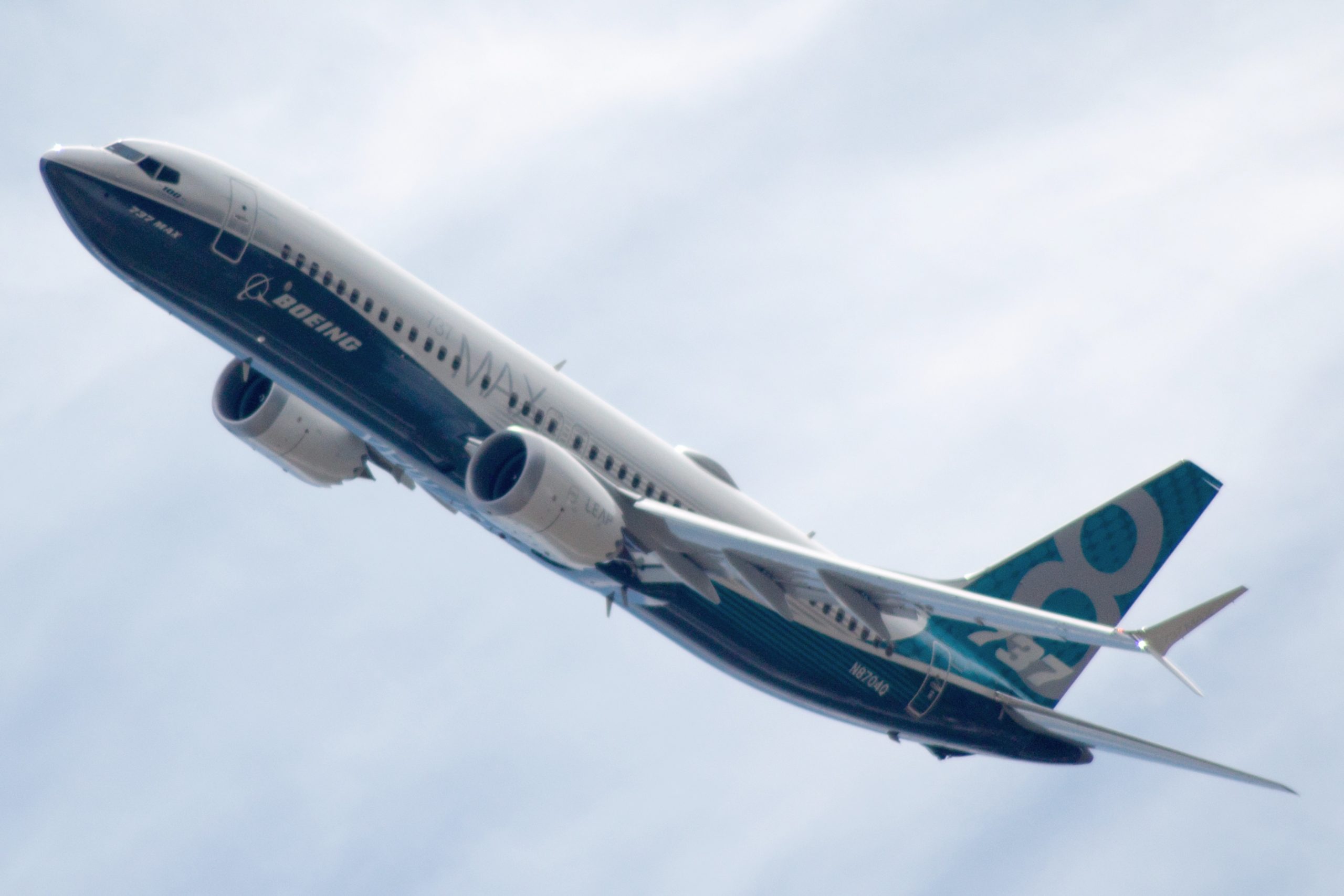
If you’re looking to book a commercial flight after the holidays, you might find yourself on a Boeing 737 MAX.
Controversy arose following the crashes of Lion Air Flight 610 in 2018 and Ethiopian Airlines Flight 302 in 2019 in which a total of 346 people died. Following the accidents, the 737 MAX planes were grounded.
Now production is beginning to ramp up again with commercial flights expected to resume. Moreover, Boeing is still attempting to market its unused and unmodified MAX planes, according to Reuters.
But how safe is it to fly on a 737 MAX?
A New Kind of Plane
According to Flight Global, a news source for aviators, the idea for the 737 MAX came about when Boeing sought to build a plane that would burn less fuel. Specifically, Boeing wanted to match Airbus’ A320neo’s 15% fuel burn advantage. This is essentially just fancy talk for “burns less fuel.”
By widening the plane’s fans, splitting the winglet, and adding a re-lofted tail cone, Boeing matched the Airbus plane in fuel burn advantage.
While these details are aesthetically pleasing and perhaps suspiciously commercial, the issue is with the 737 MAX’s Maneuvering Characteristics Augmentation System (MCAS).
According to The Washington Post, the MCAS is an automated flight control designed by Boeing that had a direct role in both the crash of Lion Air Flight 610 on October 29, 2018 and Ethiopian Airlines Flight 302 on March 10, 2019.
Controversially, Boeing removed descriptions of the MCAS from flight manuals while the 737 MAX was being certified. As such, pilots were unaware of the system’s integration with the 737 MAX.
Predictably, this caused issues during commercial flights.
Four Accidents per Million Flights
Yahoo! Finance reported that previous models of the Boeing 737 plane averaged about .2 accidents per one million flights. After just 500,000 flights — two 737 MAX planes crashed, killing everyone (346 people) on board. Thus, their accident rate is four accidents per million flights.
Calculating the 737 MAX average against previous 737 models, the 737 MAX was approximately 20 times as dangerous. This math also indicates that the accident rate increased by 2,000% from previous models.
As for why the two flights crashed, the blame seems to lie firmly with the MCAS.
On Lion Air Flight 610, the MCAS pushed the plane into a dive after a faulty sensor reading. The flight crashed into the Java Sea approximately 13 minutes after it took off from an airport in Jakarta, according to the accident report conducted by the Republic of Indonesia.
Interestingly, on the day before the crash, a 737 MAX flown by a different crew experienced the same issue. However, an extra pilot sitting in the cockpit quickly diagnosed the problem and showed the crew how to disable the MCAS malfunction, Bloomberg reported.
Just four months later, however, Ethiopian Airlines Flight 302 crashed just six minutes after takeoff from an airport in Ethiopia.
Aljazeera reported that, once again, the MCAS configured the plane to dive soon after takeoff. This malfunction made the 737 MAX’s vertical speed unstable.
After the Lion Air crash, Boeing issued an operational manual which included instructions on how to counteract a malfunctioning MCAS. However, the crew of Ethiopian Airlines Flight 302 followed these exact guidelines, but were still unable to gain control of the plane, Aljazeera added.
Boeing’s Response

The second crash culminated in the grounding of all 737 MAX planes. However, The Seattle Times reported that Boeing deflected blame when questioned by the Federal Aviation Administration (FAA). Boeing asserted that if the crew had followed the operational guidelines, the crashes wouldn’t have occurred.
The Washington Post further reported that investigations into the accidents yielded evidence of a cover-up from Boeing. Allegedly, Boeing was aware of the MCAS defect, but went ahead with production, certification, and commercial use anyway.
Furthermore, the FAA certifications lapsed as they anticipated updates to the MCAS system by April 2019 after the first crash. However, a second crash had occurred by April — proving that Boeing and the FAA were needlessly risking lives.
The findings of the investigation forced Boeing to suspend production on the 737 MAX, with 400 planes awaiting delivery, CNN reported. However, less than 10 months later, in November of 2020, the FAA cleared the MAX to return to service after adjustments to the design could be made.
The Future of Boeing and the MAX
Since August, Boeing has attempted to re-market the MAX as the Boeing 737-8. The move is a clear attempt to move away from the negative connotation associated with the MAX name.
Despite over a thousand order cancellations since the grounding of the 737 MAX, Boeing is still attempting to market the original, unmodified MAX planes.
Fox Business has noted that deliveries and production of the 737 MAX have already resumed. The first expected commercial flight is scheduled for December 29th, 2020.
In an era where corporate discipline seems virtually non-existent, consumers must ask themselves whether a company like Boeing can be held accountable for irresponsible, reckless behavior — and the loss of hundreds of lives.
Just earlier this year, we saw a massive drop in airline seat purchases following the outbreak of the novel coronavirus. Yet, the effects of the pandemic in the wake of a major scandal seem to have hurt Boeing little.
Ultimately, passengers will have to decide whether they trust a company that has profited from the assumption that its customers care as little as they do.
By Thomas O’Connor
Bud Voyage: How 6 Travelers Cope With the Fear of Flying and Flight-Related Anxiety



Thomas
Thank you for the article. I lost my son in law and his brother on the Ethiopian flight. In writing this article it keeps people aware of what Boeing did and that’s the goal of the families that lost loved ones.